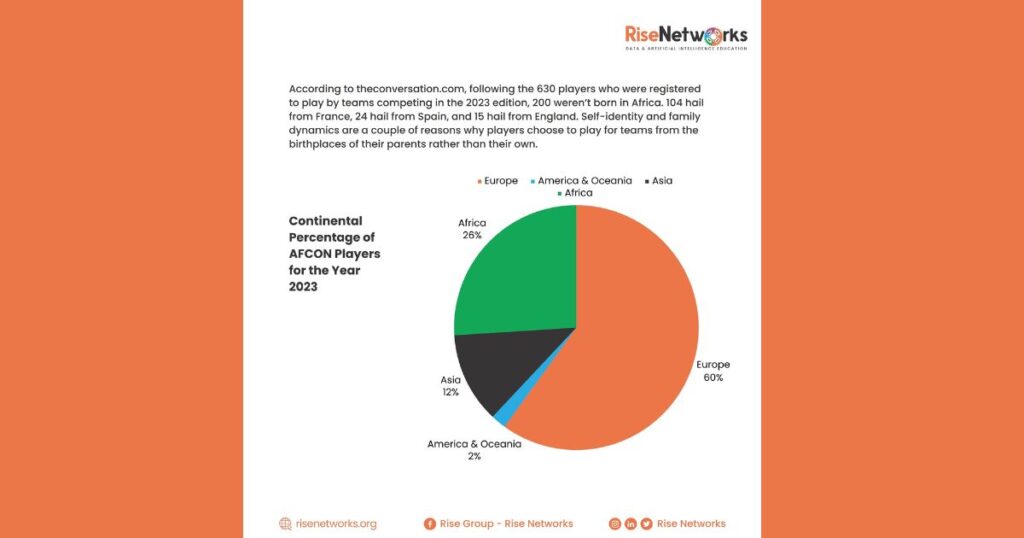The African Cup of Nations (AFCON) serves as a celebration of football excellence and cultural diversity, bringing together players from across the globe to compete on African soil. In the 2023 edition, the continental percentage of players unveiled a fascinating mosaic of backgrounds and nationalities, reflecting the intricate tapestry of modern football. Let’s delve into the statistics and insights behind this captivating phenomenon.
AFCON Players: The Data Unveiled
In a comprehensive analysis conducted by theconversation.com, the demographics of AFCON players in 2023 came to light. Out of the 630 players registered to compete, a notable portion—200 players—were not born in Africa. Among these, 104 players hailed from France, 24 from Spain, and 15 from England. This revelation sheds light on the diverse origins and influences shaping the composition of AFCON teams.
Exploring the Continental Percentage
1. Foreign-Born Players: A Global Influence
The significant presence of foreign-born players underscores the global appeal and reach of AFCON. Players hailing from countries outside Africa bring diverse skill sets, experiences, and perspectives to the tournament, enriching the competition’s fabric and elevating its international stature.
2. French Connection
France emerges as a prominent contributor to the contingent of foreign-born players in AFCON 2023. With 104 players representing the French diaspora, the strong ties between France and African football are palpable, fueled by historical, cultural, and familial connections that transcend geographical boundaries.
3. Spanish and English Contingents
Spain and England also make notable contributions to the continental percentage of AFCON players, with 24 and 15 players respectively. The presence of these players reflects the allure of African football and the allure of representing one’s ancestral roots on the grand stage of international competition.
Factors Influencing Player Choices
1. Self-Identity
Players often choose to represent teams based on their self-identified cultural or ancestral ties, rather than their country of birth. This nuanced understanding of identity and belonging fuels a sense of pride and connection among players, fostering a deeper emotional investment in the tournament.
2. Family Dynamics
Family heritage and lineage play a pivotal role in shaping players’ decisions to represent African nations. The desire to honor familial roots and ancestral legacies serves as a driving force behind player commitments, imbuing the tournament with a profound sense of heritage and tradition.
Celebrating Diversity in Football
The continental percentage of AFCON players in 2023 offers a poignant reminder of football’s unifying power and its ability to transcend borders and boundaries. As players from diverse backgrounds converge to showcase their talent and passion for the beautiful game, AFCON emerges as a beacon of inclusivity, cultural exchange, and sporting excellence.
Conclusion
Reflecting on the AFCON players in 2023, we see a diverse tapestry defining African football. From Paris to England and Spain, players unite under AFCON, embodying unity and passion. As the tournament captivates audiences, let’s celebrate the mosaic of cultures on display.

